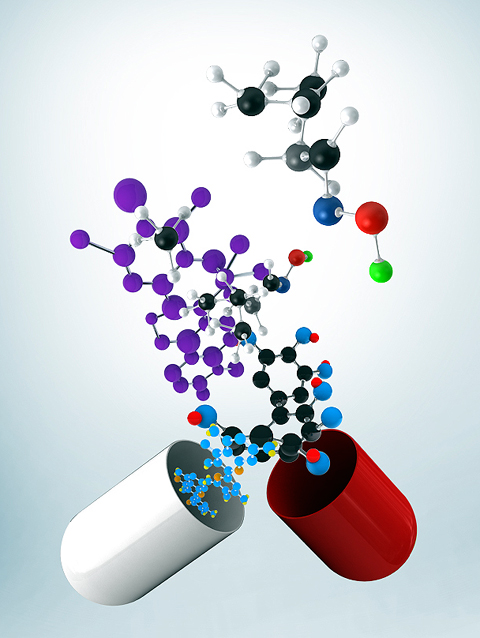With researchers actively using nanotechnology to treat diseases, the nanomedicine market is expected to grow rapidly, a report said.
Using nanotechnology, nano drugs approved by the U.S. Food and Drug Administration include Johnson & Johnson’s ovarian cancer and HIV treatment Doxil, Celsion’s liver cancer treatment ThermoDox, and Celgene’s breast cancer treatment Abraxane.

A recent report by the Korea Institute of Science and Technology Information said the volume of the global nanomedicine market amounted to $360.2 billion (390.2 trillion won), and that of the local market, 810 billion won, as of 2016.
The global and local market will annually grow 12.2 percent and 21.2 percent, respectively, by 2021, it said.
“By 2021, the nanomedicine market will grow to $639.9 billion (692.8 trillion won) globally, and 1.45 trillion won locally,” said the report, authored by Yoo Seon-hee, a research fellow at the KISTI’s technology innovation analysis center.
“Nano drug development has centered on cancer treatment in recent years. Despite many challenges, nanomedicine can be useful both in preventing and treating cancer. It also enables customized treatment for various cancers,” the report said.
Nanomedicine posted the sales of $134.4 billion in cancer treatment last year. The figure is expected to hit $300 billion in 2021, according to the KISTI.
In treatments for central nervous system diseases, nanomedicine’s sales are estimated to increase to $131.4 billion in 2021 from $96.4 billion in 2016. The third-largest field for nano drugs is treatments for infectious diseases.
“Nanomedicine research has surged in the past 20 years. Now, every country is making efforts to commercialize nano drugs,” the KISTI report said. “Seeing the potential of nanomedicine, government agencies and venture funds are increasingly supporting startup firms around the world.”
The KISTI added that more than 200 companies are focusing on nano drugs and 47 percent of them are startups. As 80 percent of them are small- and medium-sized enterprises or startups in the global nanomedicine market, local ventures and SMEs are expected to join the global trend, it added.

